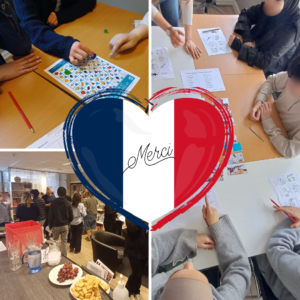In an increasingly globalized world, mastering multiple languages is a valuable asset. For children, learning several languages from an early age can offer numerous benefits. Here are four main reasons why multilingualism is beneficial for children from age 3.
Cognitive and intellectual development
Multilingualism offers significant benefits for children’s cognitive development. Studies show that bilingual children have a god ability to solve problems and think critically. For example, research conducted by the University of York indicates that multilingual children demonstrate high cognitive flexibility, enabling them to switch between tasks easily and adapt to new situations with more ease. Learning multiple languages also stimulates memory, attention, and multitasking skills.
School performances
Children who speak multiple languages often achieve great academic results. A study published by the American Council on the Teaching of Foreign Languages indicates that bilingual children excel in reading, writing, and mathematics. Furthermore, learning a second language improves the understanding of the native language and other school subjects. The linguistic skills acquired through multilingualism also facilitate the learning of additional languages in the future.
Cultural and social enrichment
Multilingualism opens doors to a better understanding and appreciation of different cultures, as shown by this study from Cambridge University. Children who learn multiple languages develop cultural sensitivity and openness, which promotes positive social interactions and greater tolerance towards others. For instance, a child who speaks both French and English can easily make friends in diverse settings, thus strengthening his/her social network and sense of belonging to a global community.
Emotional and personal benefits
Mastering multiple languages also contributes to children’s emotional development. Bilingual children often show empathy and a good ability to understand others’ emotions. This is partly due to their exposure to various expressions and cultural nuances. Additionally, being able to communicate in multiple languages boosts self-esteem and confidence, essential qualities for personal growth. For example, a child who can speak to their grandparents in their native language experiences a sense of pride and deeper family connection.
Encouraging and experiencing multilingualism from childhood is undoubtedly a valuable investment for the whole family. In Norway, France and elsewhere, multilingualism also deserves to be supported at school level (and not only in high school and university!). It is with this in mind that Fransk kulturhus is pleased to regularly offer training courses for French teachers in Norway. As for our French courses for beginners and French-speaking children from 3 to 15 years old, they naturally bring to life, with the help of our specialized teachers, a positive multilingualism based on modern and progressive learning methods.




